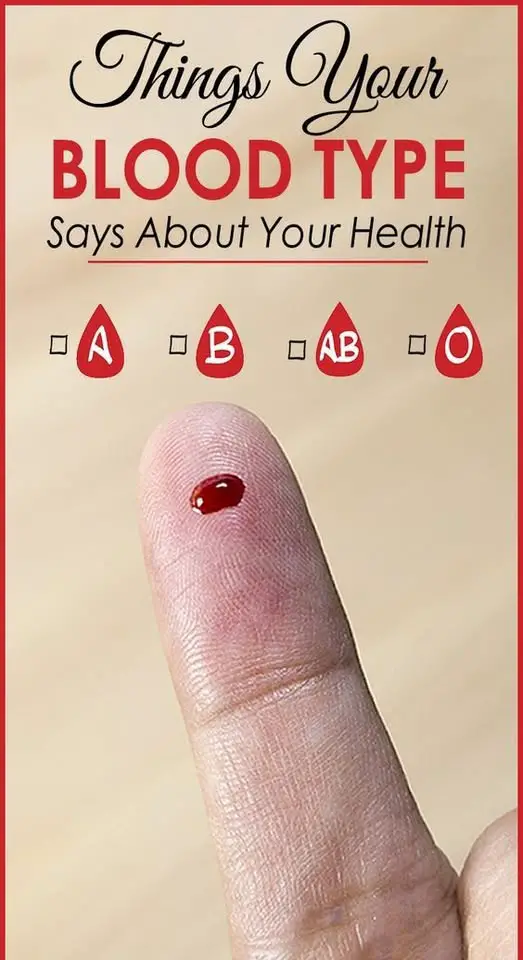Your Blood Type Isn’t Just a Label – 5 Hidden Clues About Your Health
Most people know their blood type only because of medical forms or emergency needs. But did you know your blood type may hold surprising clues about your overall health? Research shows that whether you’re A, B, AB, or O can influence your risk for certain diseases, how your body reacts to stress, and even the way you digest food.
Here are five fascinating ways your blood type could be linked to your health.
1. Heart Disease Risk
Studies suggest that people with blood types A, B, or AB may have a slightly higher risk of heart disease compared to those with type O. This is partly due to differences in blood clotting factors and cholesterol levels. While your blood type doesn’t seal your fate, it’s a good reason to keep an eye on diet, exercise, and regular checkups if you fall into one of the higher-risk groups.
2. Blood Clotting & Stroke
Certain blood types—particularly type AB—are associated with an increased risk of blood clotting disorders and stroke. This is linked to higher levels of a clotting protein called von Willebrand factor. If you have AB blood, being aware of lifestyle factors like smoking, high blood pressure, or inactivity becomes even more important.
3. Digestive Health
Your blood type may also influence gut health and digestion. For example, people with type O often produce more stomach acid, which can aid in breaking down proteins but may also make them more prone to ulcers. Meanwhile, type Aindividuals may have lower stomach acid levels, potentially affecting how efficiently they digest meat.
While the “blood type diet” remains controversial, scientists agree that your genetic makeup does impact how your body processes food.
4. Susceptibility to Infections
Blood type can also affect how your body responds to infections. For example, research shows that people with type Oare less likely to develop severe malaria, while type A individuals may be more susceptible to severe COVID-19 symptoms. These differences highlight how blood type has played a role in human survival and disease resistance throughout history.
5. Fertility and Pregnancy Health
Blood type also plays a role in reproductive health. Women with a negative Rh factor (like A-, B-, O-, or AB-) may face complications during pregnancy if the baby inherits a positive Rh factor from the father. This is why Rh screening and treatment are a routine part of prenatal care.
Tips for Using This Knowledge
-
Know your numbers: Get tested for blood pressure, cholesterol, and blood sugar, especially if your blood type increases certain risks.
-
Adopt healthy habits: Regardless of type, balanced nutrition, exercise, and stress management remain the foundation of good health.
-
Talk to your doctor: If you know your blood type, ask how it may influence your personal health risks.
Final Thoughts
Your blood type isn’t just a label—it carries valuable health insights. While it doesn’t determine your destiny, understanding the hidden clues linked to your blood group can help you take proactive steps toward better health.
In short: your blood type may tell a bigger story than you realize.
